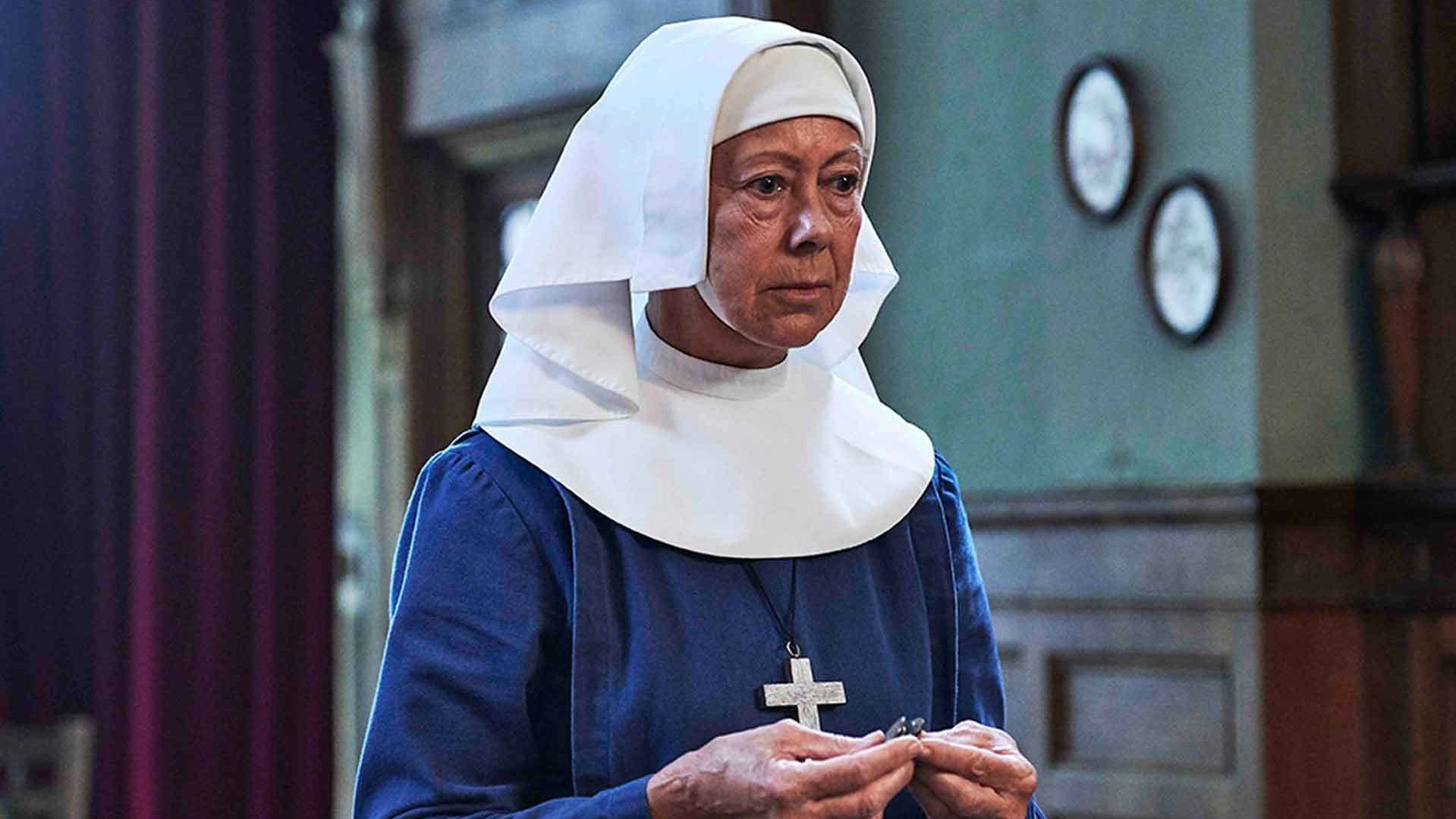
When people hear the term midwife, they undoubtedly think of someone who attends births. They may picture those births in the home, birth center, or hospital, but they would rarely imagine that midwives can also be involved in end of life care. Helping someone through childbirth and helping a soul transition in death hold some interesting similarities. Most often, both experiences require the caregiver to “hold space,” or have an open mind, ears, and heart. This means being present without judgment, listening when needed, and doing so with empathy and compassion. We open this week’s episode of Call the Midwife with Sister Julienne overseeing a loving grandmother transition from this world, providing both medical care and oversight as well as emotional support to this woman and her family.
I often find myself holding space when I am attending a birth. The birthing parent may be experiencing so many sensations, both physically and mentally. There is nothing I can actually do to help this person perform the task of labor. If things are proceeding normally, sometimes holding space along with occasional gentle words of encouragement are all that are needed.
While I have not personally done a lot of work involving end of life care, I know several midwives who have been involved in hospice work in addition to birth work. I have also recently become aware of the growing profession of “death doulas,” or doulas that are certified to provide support to people and their families during end of life care. In the same way that doulas during childbirth are non-medical professionals who are trained to support birthing folks and their families through the transition to parenthood, end of life doulas can complement the care provided from hospice services. End of life doulas are extensively trained in emotional support, both for the dying individual, and for their families and friends. Like a birth doula, they also have enough knowledge of the situation and experience that they can at times, anticipate the needs of the dying person or their families. Doulas may identify when family members require a moment to themselves, whether it is for food, rest, or other self-care. When family or other support persons are adequately supported and caring for themselves, they are able to better care for their loved one, be it in birth or in death.
Birth and death, the great transitions in life, hold such significance in the lives of the bystanders. What I mean is that while the person who is doing the transitioning (the baby being born, or the person dying) won’t be aware of the details of the day, the others involved will have a lasting impression of that day for the rest of their own lives. It is a great honor, but also a great responsibility, to oversee both situations. I’ve occasionally thought about how things that I say or do on a daily basis through my midwifery work might be things that people will always remember. I loved how Sister Hilda encouraged Ronald Mallen, a nervous (but excited!) father-to-be, to be involved in the birth of his first child, despite the teasing and discouragement from the other fathers in their class. I cringed when Nurse Crane tried to keep him from the delivery room—she said he was an infection risk! I was relieved that she changed her mind after seeing how committed Ronald was to both supporting his wife Aileen as well as being present for the birth of their child. And kudos to Sister Hilda for speaking with Phyllis afterward, reminding her that times are changing, and that support from the fathers in the delivery room was becoming more common. I’m sure Phyllis didn’t realize that soon, family-centered care during birth would be one of the goals of midwifery care!
This week, I was really able to reflect on the significance of nursing care and midwifery practice after watching Call the Midwife. The work we do is so important; the nurse and midwife must balance skills and expertise as well as provide emotional support and hold space for all involved in these life transitions. This has inspired me to be more intentional with my words, my time, and my perspective not only while at work, but at home. I may only be one person, but my words and actions could impact the people around me for their lifetime.
Get Another Take: Recommended Call the Midwife Recaps
From Thirteen.org | The British Tele Dish
From WTTW Chicago | The Playlist Blog
From NPT Nashville | The Vanderbilt University School of Nursing Recap
From WETA Washington | The Tele Visions Blog
From WGBH Boston | Watch Drama After Dark or Read the weekly recap